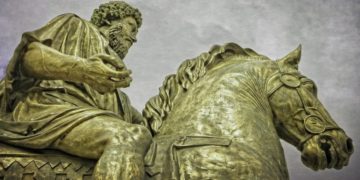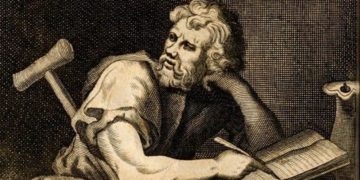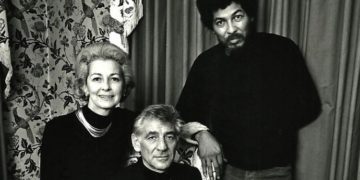In literature, archetypes are used to generate characters and models in social science. Religion, philosophy, literature, myths, and legends all contain these elements of culture. These can be used as role models or cautionary tales about character defects.
The archetypes listed below are some of the most common.
- Absent Father / Mother
- Absent-minded Professor
- Adventurous Child
- Aloof Boss
- Amateur Detective
- Angry Loner
- Annoying Neighbor
- Anthropomorphic Animals
- Anti-Hero
- Audience Surrogate
- Author Surrogate
- Authority Figure
- Awkward Nerd
- Backstabbing Friend
- Bad Boss
- Bad Boy
- Beautiful Loner
- Big Wheel at the Cracker Factory
- Black Knight
- Black Widow
- Blind Seer
- Boy / Girl Next Door
- Career Criminal
- Caregiver
- Chooser of the Chosen One
- Chosen One
- Class Clown
- Clumsy Hero
- Con Artist
- Concept Personification
- Crazy Cat Lady
- Crooked Cop
- Damsel in Distress
- Dark Lord
- Dilettante
- Disaffected Detective
- Don Juan
- Drill Sergeant
- Dumb Jock
- Dumb Muscle
- Egomaniac
- Enchantress
- Everyman
- Evil Matriarch
- Evil Twin
- Fairy Godmother
- Fall Guy
- Fallen Angel
- Father Figure
Femme Fatale - Ferryman
- Gentle Giant
- Gentleman Thief
- Girl / Boy Genius
- God / Goddess
- Good King / Queen
- Good Samaritan
- Gossiping Servant
- Grande Dame
- Grandstander Bully
- Great Imposter
- Guardian Angel
- Hardboiled Gangster
- Hardboiled Private Investigator
- Henchman / Thug
- High Chair Tyrant
- Hillbilly Hopeless Romantic
- Incompetent Gangster
- Ingenue
- Intelligent / Deep Loner
- Jester / Harlequin
- Kindhearted Princess
- Last Man
- Liberator
- Likable / Redeemable Villain
- Logical Leader / Captain / Professor
- Logical Nerd
- Lone Hero
- Loose Cannon
- Lovable Rogue
- Loyal Friend / Partner
- Loyal Servant
- Loyal Skeptic
- Machiavellian Villain
- Mad Scientist
- Magician
- Maiden
- Mama’s Boy
- Man Alone
- Manic Pixie Dream Girl
- Mary Sue / Gary Stu
- Mean Popular Girl
- Mother Figure
- Nefarious King / Queen
- Nemesis
- Noble Savage Old
- Wise One
- Oppressed Princess
- Out-of-Towner
- Outcast
- Outlaw
- Overinvolved Mother / Father
- Peacemaker
- Personification of Joy
- Personification of Mother Earth
- Personification of National Character
- Personification of Old Age / Youth
- Personification of Peace
- Personification of Sadness / Despair
- Personification of War / Destruction
- Precocious Child
- Preppy
- Prince Charming
- Prodigal Son
- Rebel Without a Cause
- Rebellious Teen
- Redneck
- Reluctant Hero
- Reluctant Monster
- Reluctant Private Investigator
- Rightful Heir / Ruler
- Robin Hood
- Ronin
- Scorned Goddess
- Scribe
- Scrooge
- Seeker
- Shadow Leader
- Shallow Rich Girl
- Shape-shifter
- Sibling Rivalry (e.g., The More Successful Brother / Sister)
- Side Kick
- Sleazy Politician / Lawyer / Businessperson
- Slow Burn
- Social Climber
- Soubrette
- Star-Crossed Lover
- Starving / Tortured Artist
- Straight Man
- Strong Silent Type
- Succubus / Incubus
- Superfluous Man
- Superhero
- Tortured Superhero
- Superhero Alter Ego
- Supervillain / Villain
- Swashbuckler
- The Addict
- The Advocate
- The Alchemist
- The Beggar
- The Brilliant Detective
- The Builder
- The Conspiracy Theorist
- The Creator
- The Crone
- The Crusader
- The Curmudgeon
- The Cursed & Unlucky
- The Diplomat
- The Eccentric Foreigner
- The Environmentalist
- The Eternally Young
- The Foil
- The Gigolo
- The Giver
- The Glutton
- The Gourmet
- The Healer
- The Imposter
- The Improbable Survivor
- The Innocent
- The Likable Troublemaker
- The Lucky
- The Martyr
- The Muse
- The Mystic
- The Narcissist
- The Nice Guy
- The Nonconformist
- The Novice
- The Orphan
- The Perfectionist
- The Pessimist
- The Philosopher
- The Pilgrim
- The Pioneer
- The Psychopath
- The Reformer
- The Ruthless
- The Saboteur
- The Sage
- The Savant
- The Scapegoat
- The Shrew
- The Sloth
- The Sociopath
- The Stickler
- The Storyteller
- The Therapist
- The Trickster
- The Usurper
- The Vagabond
- The Victim
- The Vigilante
- The Weakling
- The Workaholic
- Tomboy
- Town Fool / Village Idiot / Town Drunk
- Tragic Hero
- Trickster
- Troubled Vet
- True Believer
- Tsundere
- Turncoat
- Ubermensch
- Underdog Contender
- Underling
- Unseen Character
- Useful Idiot
- Voice of Reason
- Wannabe Hero
- Weakling Prince
- Whisky Priest
- Wicked Stepmother
- Wingman
- Wise Fool
- Witch / Warlock
- Yokel
- Yuppie
A character representing the audience or the author is an audience/author surrogate.
A Big Wheel at the Cracker Factory is a person who believes they are powerful because they hold a management position in a firm but struggle because others outside of this environment do not respect them. It all started with a phrase from The Simpsons, in which a character boasts about his father being a “huge wheel at the cracker factory.”
A character who embodies an abstract notion, such as “freedom,” is a concept of personification.
An amateur is someone passionate about something they have little skill or experience—an affluent patron of the arts who cannot perceive creative talent.
Everyman is the main character who is utterly average and unassuming.
A Grande Dame is a powerful and upper-class female socialite.
The High Chair Tyrant makes demands, provides nothing in return, is highly sensitive, and lashes out at anyone who does not fulfill their urgent needs.
The Hopeless Romantic is a painfully hopeful and trusting character.
The Last Man is just concerned with his safety, security, and necessities like entertainment. Risk-takers, individuality, and freedom seekers are feared and punished by them.
Manic Pixie Dream Girl is a female character that is always upbeat, extroverted, innocent, and cute.
Mary Sue is a flawless female protagonist with significantly more talent, ability, and power than everyone else in the plot. Male characters with this taste are uncommon, as men are frequently given tragic or hilarious defects, yet they are known as Gary Stu.
Noble Savage is a fictional character who represents humankind’s humble wisdom and goodness in a presumably more innocent era, society, culture, or community. Historically, myth, literature, and film have all used it.
A samurai without a master is known as a Ronin. These are misfits who are extremely capable and dangerous to the elite.
Slow burn is a character that appears to be ordinary at first but gradually reveals himself to be outstanding.
A Soubrette is a flirty and vibrant character.
A Strong Silent Type is a quiet, reserved character who is incredibly resilient and capable.
The Superfluous Man is a privileged character who causes trouble and engages in sin due to boredom and a lack of moral fiber.
A Swashbuckler is a swashbuckler who is clever, skilled in combat, and unwillingly virtuous.
The Trickster is a religious, folklore, and mythological archetype that employs great intelligence to deceive people or gods. Usually more nefarious than nefarious.
Tsundere is a Japanese name for a character that appears stern, cold, and harsh at first but gradually exhibits profound emotional depth.
Ubermensch is a person who is fully free of societal and cultural restraints and fearlessly pursues self-actualization.
A frequently referenced figure but never appears in a tale or film is an unseen character.
Because powerful and dark powers have persuaded them, a useful idiot endorses a cause they don’t understand.
A straight man is a serious character who adds to the comedy of a scenario.
A foil is a circumstance in which two characters are opposed to highlighting their respective personality qualities. Consider a married couple in which one is preoccupied with social status and appearances while the other is modest and distant.
If you’re interested in learning more about norms and culture, here’s an article on some common types of polite fiction.

Senior Editor
Brielle used to write for a pop culture magazine, where she handled a small “good news” section by the back of the print media. Brian and Cynthia took notice and offered her the editor post upon forming Living By Example . Years later and she now leads our pool of writers across the globe








